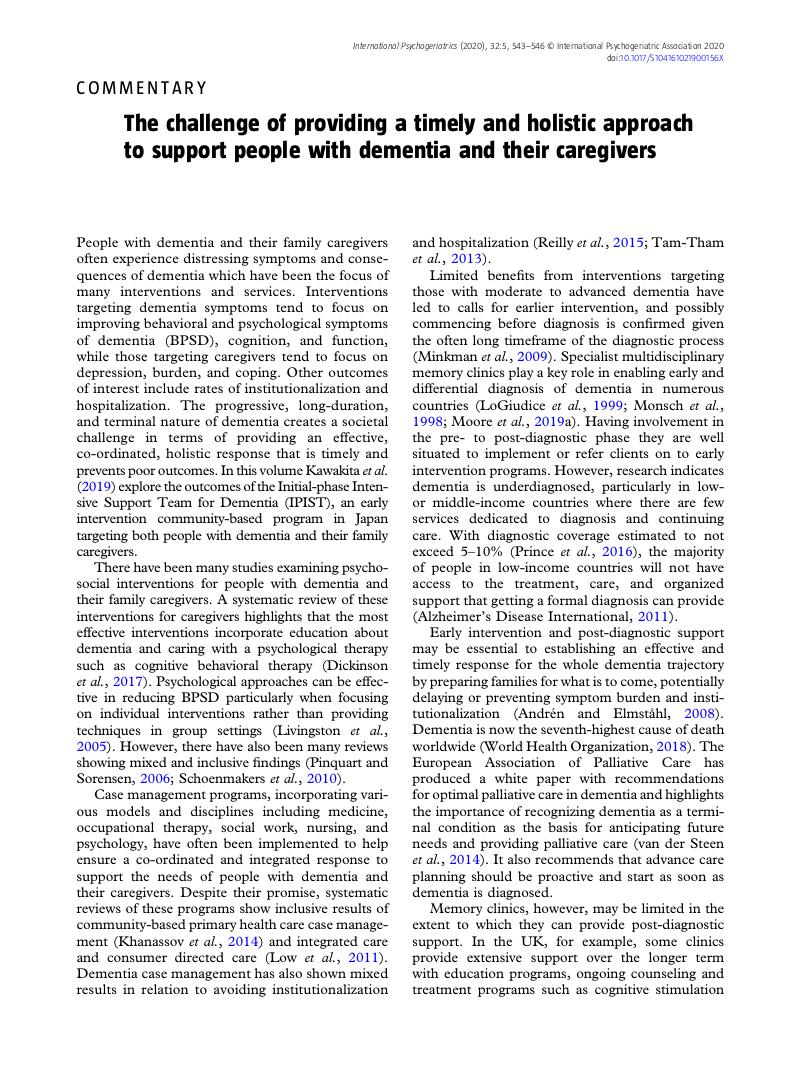Crossref Citations
This article has been cited by the following publications. This list is generated based on data provided by Crossref.
Chapman, Kimberly R.
and
Spitznagel, Mary Beth
2022.
The need for disinhibition-focused interventions in dementia.
International Psychogeriatrics,
Vol. 34,
Issue. 4,
p.
331.



